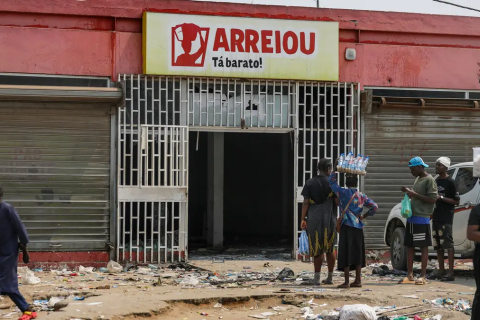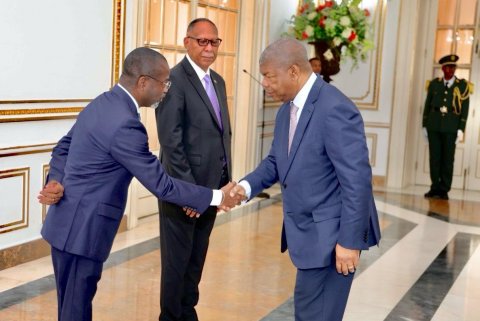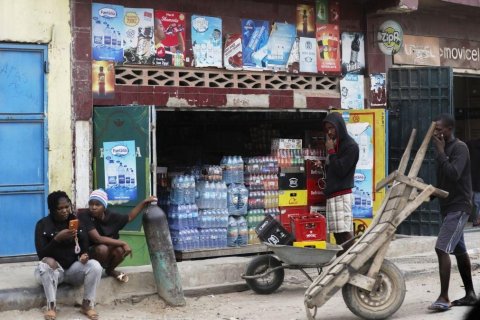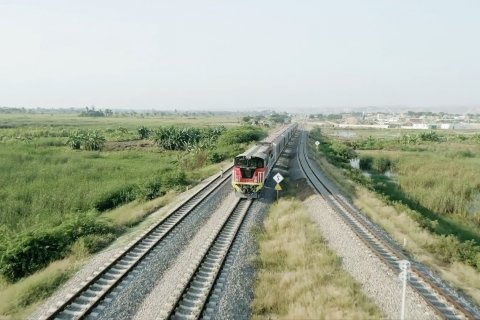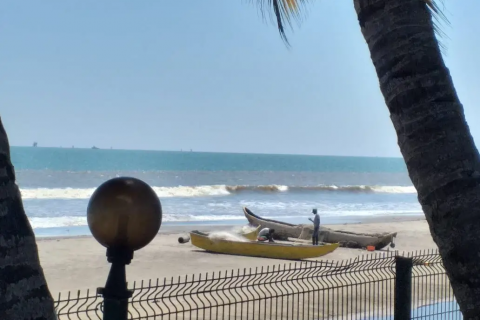"Something has certainly changed for Isabel dos Santos, but for Angola it has changed very little," said the academic and author of the work "Angola: Magnificent and Miserable," to Lusa, commenting on the consequences of the investigation journalist who exposed the schemes that allowed the company and daughter of the former Angolan president to appropriate millions of dollars of Angolan money
For Ricardo Soares de Oliveira, the impact of Luanda Leaks goes beyond the revelations concerning the main target, demonstrating "the 'modus operandi' of the Angolan economy over the last 20 years and the involvement not only of people linked to the former president, but also of bank officials, accountants, lawyers and other international service providers who "show the systemic dimension of Angola's looting.
Luanda Leaks could "drive structural reform of the Angolan economy," helping to punish people who played a major role in the looting and in rebuilding the institutions of the Angolan economy to prevent looting from happening again in the future, but "this is not being done," he argued.
"For now, we have a kind of soap opera where the 'bad princess' finally gets the punishment she deserved and the systemic dimension has been ignored. There are those who say that the procession is still in the churchyard and that the president has the intention, in the long run, to move forward with this structural cleaning, we will see," said the professor of politics and international relations at Oxford University.
For Ricardo Soares de Oliveira, the Luanda Leaks was a phenomenon that had an impact mainly outside Angola, serving essentially to weaken and undermine the respectability of Isabel dos Santos on the international stage, especially in Portugal, where the consequences were more serious.
"In the case of Portugal, we have a dependence and a deference to the Angolan context very large. Until 2017, Isabel dos Santos was surrounded by sycophants in Lisbon - almost the entire political and business class. The day João Lourenço dropped the Santos family, Lisbon's support began to disappear and Isabel was demonized," explained the expert, pointing out that Portugal has "marched to the sound of Angolan music, previously an eduardist and now a lourist.
Ricardo Soares de Oliveira notes that the way in which the main protagonists are seen has also changed.
The President, João Lourenço, benefited at first from great popularity when he decided to directly attack the former president and some close people, between late 2017 and early 2018, when Angolan society felt "an immense resentment" towards the Santos family. But public opinion changed.
"Today, people don't ask questions about the governance of ten years ago, but about the current situation, and there is a perception that President João Lourenço has not solved any of the major structural issues, which have to do with the economy and unemployment," he pointed out.
And while the hostility towards Isabel dos Santos was dissipating, the fear of the destiny of her companies gained strength.
"In December 2019, when the state took over the companies of Isabel dos Santos - Angola's largest employer outside the public sector - the reaction I got from many Angolans was: these companies will fly," said the researcher.
And although not everyone made such sinister predictions (some limited themselves to saying that the state is incompetent, recalls Ricardo Soares de Oliveira), the general perception when the decision to seize assets, accounts and holdings of the Angolan businesswoman was one of hesitation and fear.
"There was an entire upper middle class, between Luanda and Talatona, who work for those companies, an urban class in the private sector that was afraid that the state intervention would spoil the companies," he stressed.



